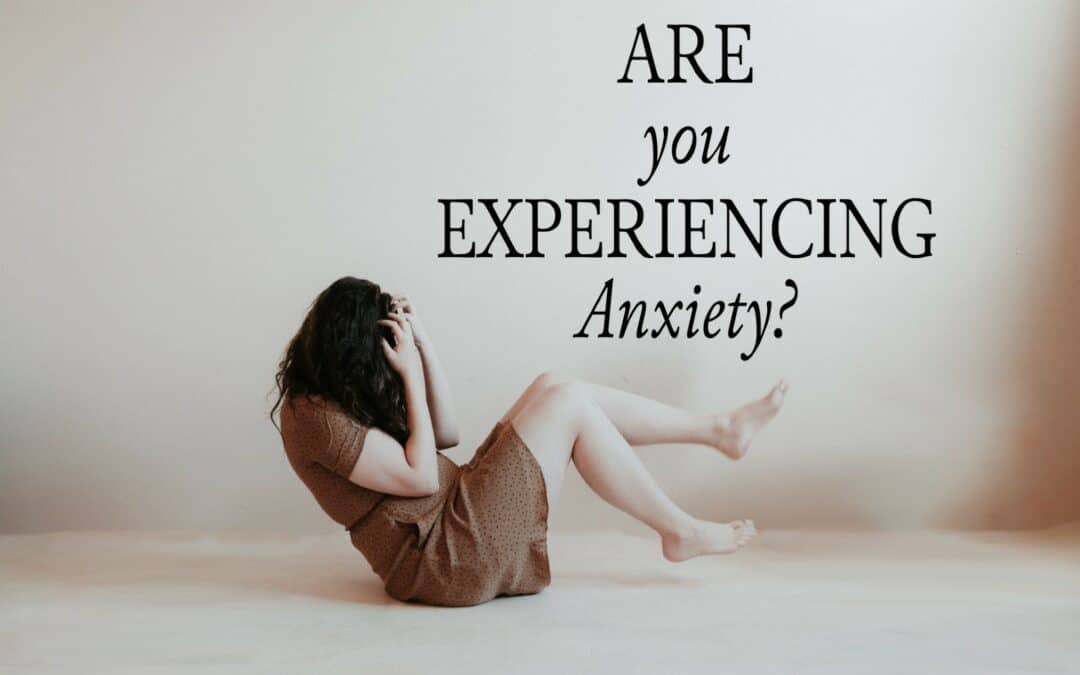Stress & Anxiety
Stressful situations can quite often lead to anxiety if left undealt with over time. Understanding our triggers and how to manage our stress levels and emotional state could be the difference between a life of ups and downs to better balance. We all experience stresses in life (both men and women) and worrying is only natural, but when we are constantly living in fear of uncertainty it can become debilitating. Anxiety can lead to lack of confidence and disconnection to those around us which equally can make us feel incredibly alone.
Women in their mid life and as they start to enter the menopausal stages can experience many symptoms (the list is endless) and Anxiety is one of those many women experience from the perimenopausal stage onwards. It can often creep up on you with no warning and all of a sudden you’re thrown into a feelings you’ve never experienced before. It can be really quite scary so it’s important we do everything we can from a lifestyle perspective to help manage our symptoms as best we can.
Here’s a few tips on the Do’s and Don’ts when it comes to living with Anxiety
- We can’t stop worrying so why tell ourselves to
It’s common to hear the words ‘stop worrying’ or ‘calm down’, I say it myself, but that’s impossible to do right. it’s like telling yourself not to sleep when you’re tired or your nose to stop smelling. In fact telling yourself to stop worrying will only draw more attention to it and most likely make you worry even more. Instead try focusing your attention elsewhere, be involved in the present and busy yourself with something you enjoy. At the same time it might work to actually put some ‘worry time’ aside, a kind of cleanse to allow you to process your thoughts/worries. This could be alone or with someone close you trust and value. Equally, submerse yourself in movement and set yourself an activity which will help you both physically and mentally.
- Stay hydrated
You may be thinking there’s no relevance, but I can assure you there is. We’ve all been told to try to drink up to 2 litres of water in order to keep on top of your physical well-being. Reaching for the water bottle can also aid focus and keep you feeling more alert and energized all of which when we’re de-hydrated can drop and possibly cause low mood and/or anxiety. In any case if we know water will keep us healthier then we should all be drinking plenty of it. Don’t forget to keep monitoring your frequency of loo stops which can be just as stressful in mid life. Find a balance
- Get Physical
When we’re put in a stressful situation our bodies can’t separate something that’s actual threat or perceived as a threat, so we switch to auto ‘fight or flight mode’, and respond to the situation. That feeling when your hearts racing, your blood is pumping and your breath becomes tight. We have no control over this response, but we can help ease this through training our bodies in regular activity. The importance of exercise, whether it’s strength training, aerobic training or mindfulness is so important for us to stay on top of our mood and reduce our anxiety.
- Social media
Who’s not guilty of this one but especially the younger generation. Getting lured into constant scrolling, especially at bedtime, can heighten anxiety levels to the extreme. It can lead your thoughts and anxieties into an unrealistic place and before you know it you’ve fallen into the trap ‘i’m not enough’ when you totally are. Limit time on social media, be a bit more choosy who you follow and try to use social media for education and inspiration. Lessen your exposure to negative news and beautified accounts that only show the insta version of life.
- Put sleep as a priority
No one can function on no sleep. Lack of sleep can make low mood and anxiety harder to handle and even intensify the symptoms. This will then create a viscous cycle of even worse sleep. Prioritize your sleep routine and ensure you give yourself plenty of time to wind down and create a relaxing atmosphere before bedtime. Try to practice a regular routine of going to bed and waking at a similar time and you will feel more in control of what is hard to control.
- Food and Mood
It’s no news that what we eat and drink can affect our quality of sleep. Our guts are heavily linked to our brains so if we’re eating foods that heighten our low mood then our sleep will again suffer. Whether you’re dealing with constant anxiety or find patterns when it’s worse, it’s important to avoid foods that will disturb your sleep and body clock such as caffeine, sugary foods and alcohol. Try to up your plant based foods and eat a more balanced diet to feed your body with the very best fuel you can.
I hope you’ve found these tips useful. If you did then join me in October when I’ll be launching my next 4 week online programme MenoFit to put this and much more in practice, helping you manage your peri/ menopausal symptoms
Here’s the link to sign up


